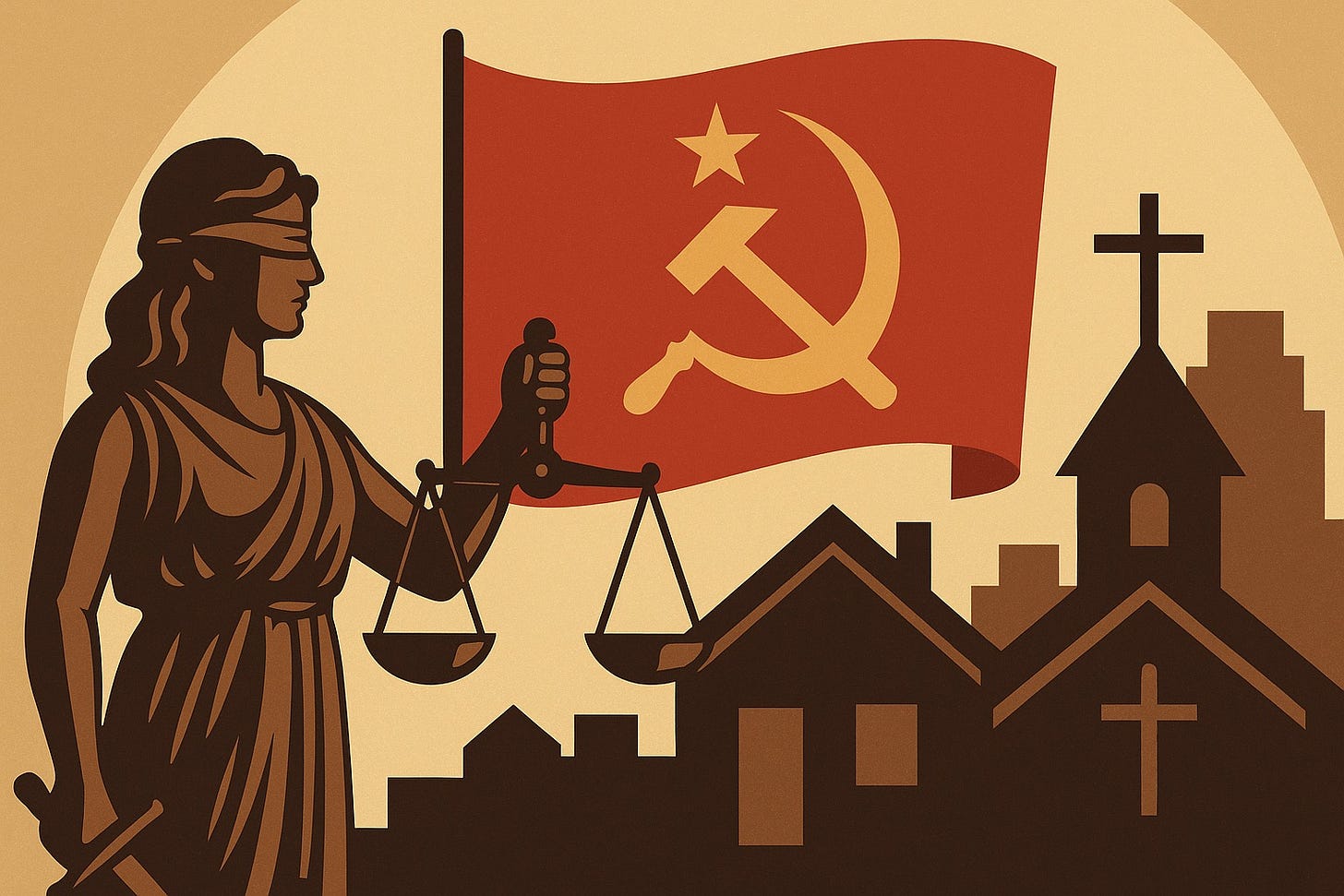The right to own and the right to worship have long stood together, and both weaken when the state controls property.
When Roger Williams fled persecution in the 1600s, he sought not only liberty of conscience but also land beyond the reach of state power. By founding Providence on principles of private ownership and voluntary faith, Williams showed that freedom of worship depends on freedom of property. That connection has reappeared throughout American legal history, especially in court rulings that link property rights and religious exercise.
Socialist systems place ownership in the hands of the state rather than the individual. Factories, farms, and homes become public assets. Once ownership shifts away from citizens, authority follows. This change shapes more than economic life. It defines who controls belief, speech, and association. Historical experience shows that centralized ownership often produces suppression of faith.
In the 20th century, socialist governments across Europe and Asia restricted both property and religion. The Soviet Union confiscated churches and banned religious schools. China continues to regulate all worship through state-controlled associations that own religious buildings. Cuba placed churches under direct government oversight. When the state owns everything, conscience depends on permission.
The United States has protected against such encroachments through a long line of property and religious freedom cases. In Pierce v. Society of Sisters (1925), the Supreme Court struck down a law requiring children to attend public schools, affirming that families and private institutions have authority over education. The ruling recognized that ownership and parental rights shield freedom of belief.
In Wisconsin v. Yoder (1972), the Court upheld the right of Amish families to withdraw their children from public schooling after eighth grade, again linking private control with religious exercise. The justices held that state power stops where conscience begins.
More recently, Church of the Lukumi Babalu Aye v. City of Hialeah (1993) ruled that local ordinances targeting religious practices violated the Free Exercise Clause. And Burwell v. Hobby Lobby Stores, Inc. (2014) reaffirmed that privately owned businesses can assert religious rights under the Religious Freedom Restoration Act (RFRA). These cases underscore how private ownership enables religious autonomy.
Congress strengthened this principle through the Religious Land Use and Institutionalized Persons Act (RLUIPA) in 2000. That law prohibits local governments from imposing zoning or land-use regulations that burden religious institutions without compelling justification. Courts have used it to protect congregations from discriminatory restrictions, such as in Westchester Day School v. Village of Mamaroneck (2nd Cir. 2007), where a Jewish school prevailed after being denied a construction permit.
James Madison wrote that “conscience is the most sacred of all property.” His point still holds. When government claims ownership of land or enterprise, it eventually claims ownership of thought. Private property gives faith tangible form—space to gather, build, and worship freely.
In every system where property belongs to the state, belief becomes conditional. To preserve faith, property must remain private. Protecting ownership is not only an economic safeguard but a foundation of personal liberty.
Tags: property rights, socialism, religious freedom, constitutional law, Supreme Court


